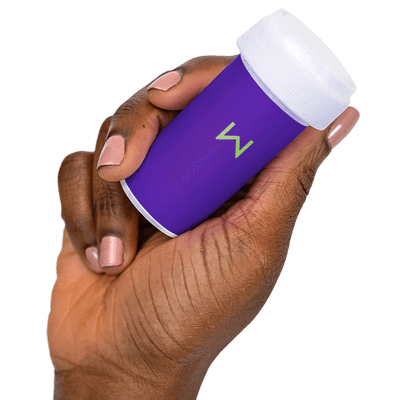Natural Remedies for Menopause Symptoms

HRT Is A Natural Remedy for Menopause Symptoms
While there is no ‘treatment’ for menopause, there are many natural remedies for menopause symptoms. Treating the often-chronic symptoms of perimenopause and menopause are critical to your health and wellness. Every woman’s experience with menopause is unique, and not every treatment option will work for all. Nonetheless, menopause can be a positive beginning with opportunities to take preventive action against health risks associated with the ever-decreasing hormones as we age.
Winona, a science-focused menopause symptom relief company, stresses that women don’t have to accept menopause symptoms as just a “part of getting older.” The changes experienced with menopause are a natural biological process, not an illness. But that does NOT mean women need to be forced to face the uncomfortable, and sometimes debilitating side effects without help.
This article will give you information about the supplements and natural products that can be used alongside hormone replacement therapy HRT. We will also point out those options that Winona purposefully does not offer because they are either not based on science or carry significant risk. Whether experiencing severe or minor symptoms, natural remedies, in conjunction with hormone replacement therapy (HRT), may help ease the nagging and exhausting side effects of menopause.
What Is Menopause and What Are The Symptoms?
Starting in their 30s or 40s, women will produce less of the hormones estrogen, progesterone, and testosterone. This stage is called perimenopause. Eventually, with the continued drop of hormones, menstrual periods will stop entirely. Once you haven’t had a period for a full year, menopause will officially begin.
Dropping levels of estrogen, progesterone, and testosterone have wide-ranging and profound effects on everything from your blood vessels to skin, hair, brain function, and an increased risk of certain diseases and conditions. Menopause can last anywhere from 10-20 years, so identifying a way to ease the symptoms of menopause is critical to your long-term well-being and health.
As hormone levels fall, a woman often notices symptoms like hot flashes, insomnia, night sweats, vaginal dryness, fatigue, and changing moods. But what is very concerning is that they might miss the fact that the drop in hormones can also be putting them at risk for osteoporosis, stroke, cancers, and heart disease if the deficiency in hormones is not treated.1
Menopause medication replaces the hormones that are dropping, offers menopause symptom relief, and prevents disease development for many women. When looking at the effectiveness of hormone replacement therapy (HRT), scientists have yet to identify a more effective remedy for menopause symptoms, specifically hot flashes and night sweats.
If you are not a candidate for hormone replacement due to your medical history there are other symptom relief options. Focusing on a healthful diet, regular exercise, and using menopausal-age-focused multivitamins can all help reduce menopause symptoms.
Prescription menopause relief. Delivered.

Is HRT Natural?
Some women decide to treat their symptoms with herbs and dietary supplements instead of HRT. There are many websites that tout that what they are selling are ‘natural’ options to help with menopause symptoms, and even suggest that HRT is not natural.
To be clear, hormone replacement therapy is a safe and physiologically-natural way for a woman to regain her vitality, and improve her long-term health! HRT can restore proper hormone levels using substances that are indistinguishable from what the body used to produce on its own.
General Remedies
Because a woman’s nutrient needs change with age, it is important to choose supplements that are tailored for their age. Women over the age of 40 have to be particularly proactive about regularly taking key vitamins and minerals. But the process of deciding which vitamins and supplements to take can be overwhelming.
The truth is, the best way to get the necessary vitamins, minerals, and antioxidants is through a well-balanced and colorful diet. But most people’s diets have gaps. If you are not consistently reaching your daily nutritional requirements, you could be missing out on vital elements your body needs to help alleviate everything from hot flashes to mood swings and to protect from heart problems, cardiovascular disease, and mental declines including Alzheimer’s. Regularly taking multivitamins can ensure that all of the needed nutrients are provided daily.2-4
Winona provides safe, regulated vitamin supplements that are specially designed to ease menopausal symptoms and support healthy aging, and include:

Vitamin A: An antioxidant essential for maintaining immune function, Vitamin A plays a critical role in bone health, and may help boost overall health.
Vitamin C: Well-known for its crucial role in the production of collagen, Vitamin C plays a role in the structure and appearance of the skin. It has also been shown to enhance immune response and may improve bone density and cognitive reasoning.
B Vitamins: Having enough B vitamins may help prevent brain fog, stroke, bone loss, depression, cardiovascular disease, and dementia; all of which can begin at menopause.
B-12 is critical for bone health, metabolism, the production of red blood cells, and DNA synthesis. Too little B-12 and a woman can experience symptoms of fatigue, depression, and dementia. If the deficiency is really bad, it can lead to anemia. As women age their body’s ability to absorb B-12 decreases, so it is wise to add B-12 back to the diet with a multivitamin.
B-6 is critical in brain function and in the creation of the chemical “serotonin” that transmits brain signals. At menopause, serotonin levels drop. These changes can lead to low energy, mood swings, and depression.
B-12 and B-6 Vitamins help with the ability to think, reason, and remember. The all too common “brain fog” menopause symptom may be reduced with these supplements.
Vitamin B-9 (folate) reduces hot flashes but should not be taken above the RDA.
Vitamin D: At low levels results in bone and joint pain, and fractures. We are able to make Vitamin D within our own bodies and store its inactive form in our skin. With exposure to the sun, the inactive form is converted into an active form, but often we don’t get enough sun. Vitamin D not only helps bone health but also reduces the risk of heart attacks, high blood pressure, strokes, asthma, allergies, and possibly breast cancer.
It may be difficult to get enough Vitamin D, and since 75% of people are vitamin D deficient it is best to take a supplement to ensure disease prevention benefits.Vitamin E: Is getting more and more attention for its antioxidant and anti-inflammation abilities and is recommended for many ailments. Research has shown that vitamin E can ease stress, reduce the risk of depression and weight gain so often associated with menopause. Vitamin E can be found in most nuts, spinach, and avocado.
Calcium: Is vital for bone health and is especially important during menopause when the decrease in estrogen makes women more prone to the weakening of their bones, or osteoporosis. While the best source of calcium is food, meeting the RDA (1,000 to 1,200 mg for menopausal women) through diet, and calcium supplements are important.
Herbal Supplements: Many women use herbal supplements to manage their menopause symptoms including the root of Black Cohosh, Soy, and flaxseed. While these herbal supplements are sold widely, Winona does not suggest using them. Botanicals and herbs may have side effects, poor oversight, or change how other medications work. The list of alternative therapies include:
Black Cohosh: (Actaea racemosa, Cimicifuga racemosa) Is an herb that has received quite a bit of attention for its possible effects on hot flashes. However, studies looking at its effectiveness in reducing hot flashes have produced mixed results.
Recent research suggests that black cohosh does not act like estrogen to reduce hot flashes, the hormone you are losing during menopause. Black cohosh has been linked to liver problems, and this connection continues to be studied. Winona does not offer or recommend Black Cohosh for these reasons.Red Clover: (Trifolium pratense) In controlled scientific studies, there has been no consistent or conclusive evidence that shows that red clover leaf extract reduces hot flashes. However, some women claim that red clover has helped them. Some studies report few side effects, but other studies have raised concerns that red clover may have harmful effects. Winona does not offer or recommend Red Clover for these reasons.
Dong Quai: (Angelica sinensis) Dong quai has been used in traditional Chinese Medicine to treat gynecologic conditions for more than 1,200 years. Clinical studies conducted on dong quai have determined that this botanical therapy was not found to be useful in reducing hot flashes. Dong quai should never be used by women with fibroids or blood-clotting problems, or by women taking drugs that affect clotting such as warfarin (Coumadin) as bleeding complications can result. Winona does not offer or recommend Dong Quai for these reasons.
Kava: (Piper methysticum) Kava may decrease anxiety, but there is no evidence that it decreases hot flashes. Warning: Kava has been associated with liver disease. The FDA has issued a warning to patients and providers about kava because of its potential to damage the liver. Winona does not offer or recommend Kava for these reasons.
Evening Primrose Oil: (Oenothera biennis) This botanical is also promoted to relieve hot flashes. However, scientific studies found no benefit to reducing hot flashes. Reported side effects include inflammation, problems with blood clotting and the immune system, nausea, and diarrhea. Evening primrose oil should not be used with anticoagulants. Winona does not offer or recommend Evening Primrose Oil for these reasons.
Ginseng: (Panax ginseng or Panax quinquefolius) Research has shown that ginseng may help with some menopausal symptoms, such as mood swings and sleep disturbances, and with one’s overall sense of well-being. However, it has not been found to be helpful for hot flashes.
Prescription menopause relief. Delivered.

The Top 10 Menopause Symptoms:
Hot flashes – Hot flashes are likely the most obvious sign of menopause. They are caused by a decreased production of the hormone estrogen and occur naturally as women approach menopause. Hot flashes are a sudden feeling of warmth that spreads over the body, creating flushing and sweating, especially on the face and upper body.
The experience of hot flashes can range from mild/light flashes to severe heat that lasts from 30 seconds to 10 minutes. Scientists have yet to find a more effective treatment for hot flashes than HRT. There are other specific things that you can do to help the different types of hot flashes. More on this later in the article.Night Sweats & Sleep Disorders – Severe hot flashes that occur during sleep and accompanied by profuse sweating are ‘night sweats.’ Many women experience severe night sweats, which cause disruptions to sleep, leading to increased irritability, depression, and stress. Menopause can cause women to wake up many times during the night, tossing, turning, and suffering from insomnia. Women going through menopause may find that their sleep is less restful and getting to sleep is increasingly difficult.
For night sweats, HRT is hands down the most effective treatment. Other considerations include sheets and looser-fitting sleepwear that are cool, such as cotton, and blankets that are easy to remove. Some women have tried a ‘chill pillow’ filled with water. An old favorite is a fan or multiple fans.Weight Gain & Metabolism Changes – Hormonal changes during menopause influence weight gain and the redistribution of fat. With menopause, not only are the hormones estrogen and progesterone decreased, so is testosterone. A decrease in testosterone can lead to less lean muscle and increased fatigue. These factors combined can result in a decreased metabolic rate.
From menopause onwards, women need fewer daily calories. Hormone therapy treatment using estrogen, progesterone, and testosterone can revitalize energy, metabolism, and assist with weight loss.Skin Changes – When estrogen levels drop during menopause, it shows (sometimes first) in your skin. Collagen is what keeps skin toned, fresh-looking, and resilient. As estrogen and testosterone drop, so does collagen production and skin/muscle tone.
During perimenopause, a woman may notice her skin getting thinner, drier, less youthful-looking, and small wrinkles deepening. Hormone therapy treatment can revitalize collagen production and slow the aging process.Fatigue – One of the most common menopause symptoms is an ongoing, persistent feeling of weakness, tiredness, and low energy. With menopause fatigue might come irritability, and decreased attention span. The hormones estrogen and testosterone, which regulate energy use at a cellular level, is reduced. So, when estrogen and testosterone levels drop during menopause, so do energy levels.
Loss of Sex Drive & Vaginal Dryness/Atrophy – In menopausal women, the main cause of low sex drive is hormonal imbalance. Libido can also be impacted by other menopause symptoms such as vaginal dryness, pain during intercourse, and/or depression. When estrogen and testosterone levels drop, the vaginal tissue becomes drier, thinner, less elastic and the vagina can become smaller. Sexual desire and the ability to reach climax also decrease. Lack of lubrication can lead to sex becoming uncomfortable, and the vagina is frequently itchy, easily irritated, and more prone to infections.
Mood swing, Anxiety, Irritability, and Depression – Menopausal mood swings are very common. When estrogen and progesterone levels drop, so does the production of mood-regulating neurotransmitters, resulting in fluctuating mood swings. Other menopause symptoms can also influence mood, such as fatigue.
Fixing the underlying hormonal imbalance is one of the most effective ways of reducing menopausal mood swings. When a woman’s estrogen and progesterone level drops, so do levels of a chemical in her brain, called ‘serotonin.’ This drop can lead to depression and mood disorders. It is vitally important to seek the advice of a healthcare professional to help mitigate this menopause symptom.
Depression, anxiety, and fear during menopause can be caused by the sudden drop in estrogen and progesterone levels, which reduces the production of chemicals responsible for mood regulation, called serotonin and dopamine.Difficulty with Concentration, Memory, Fogginess, and Even Dizziness – Many women are alarmed to discover they have trouble remembering things, experience mental blocks, or have difficulty concentrating as they enter menopause. This can be a concerning time for women and can have an adverse impact on all aspects of daily life. Replacing estrogen, progesterone and testosterone have shown to have both long and short-term benefits for memory and that ‘fogginess.’
Dizzying sensations can be caused by fluctuating estrogen levels. The dizzy spinning sensation may be accompanied by a feeling of light-headedness or unsteadiness, which are unfortunate menopause episodes.Incontinence – Estrogen replacement can return the vaginal tissue to a more youthful state giving better support to the bladder and urethra. As estrogen levels drop, vaginal tissues supporting the bladder and urethra become thinner and weaker. Adding back estrogen can go a long way to improve urinary incontinence. Incontinence in menopausal women can be divided into three types.
1) Stress Incontinence – you pee while laughing, coughing, sneezing, or with exertion. This usually happens when the internal muscles fail due to age, surgery, or childbirth.
2) Urge Incontinence – you are trying to ‘hold it,’ but your bladder doesn’t listen and empties.
3) Overflow Incontinence – you are not fully aware your bladder is full and accidentally urinate.Achy Joints – Joint pain is one of the most common symptoms of menopause. It is often related to the effects of fluctuating hormone levels on the immune system. Estrogen and testosterone help prevent inflammation in the joints, when their levels drop during menopause it can lead to increased inflammation and increased joint pain.
Hot Flash Remedies Fall into Two Categories

Hot Flashes are one of the most discussed, and often chronic, symptoms of menopause. There is a long list of potential ‘natural remedies’ for hot flashes but they can be broken down into two categories:
1) Diet 2) Lifestyle
Diet:
– Coffee: There are two reasons why coffee can trigger hot flashes: caffeine and heat. If it’s too hard to give up coffee, try it iced and stop drinking it by noon.
– Caffeinated Soda: Try the decaffeinated kind, and stop drinking it by noon.
– Chocolate: Caffeine is also found in chocolate, and the serotonin in chocolate can affect the brain’s temperature control center. Don’t completely give up chocolate! Extra dark chocolate is rich in magnesium and resets the hormone cortisol that regulates stress and anxiety.
– Spicy Foods: The spices in some of our favorite foods actually raise body temperature which is not great for hot flashes. When ordering, ask for “mild”.
– Hot Foods: Hot foods, like hot liquids, trigger hot flashes. Simply letting food cool can help prevent a hot flash.
– Alcohol: Drinking alcohol regularly can increase the number and intensity of hot flashes, especially red wine.3,6 Drinking alcohol too close to bedtime can encourage night sweats.
– Drink a glass of cool water: When a hot flash is coming on, take some time to get a glass of water. The cool water seems to lessen the discomfort for some women.5 Also, be sure to drink enough water, usually 6-8 glasses per day.
– Cut down on specifically red wine, chocolate, and aged cheeses: They contain a chemical that can trigger hot flashes by affecting the brain’s temperature control center.5Lifestyle changes: Hot flashes can be treated and tamed. Small lifestyle changes can make a big difference in the number and severity of hot flashes. Some of these changes can help reduce symptoms, while others contribute toward overall feelings of wellness:
– Exercise: Regular, vigorous exercise may decrease hot flashes but exercise in a cooler environment. Exercise can improve metabolism, energy levels, and joint health which can greatly improve physical and mental health. It can also help treat osteoporosis — especially weight-bearing exercises. Women who are sedentary suffer more from hot flashes.
– Quit smoking: Smokers tend to experience more hot flashes, and smoking is linked to early signs of menopause.
Acupuncture may help to limit the severity and frequency of hot flashes.
– Wear loose: Comfortable clothing made of cotton to help absorb perspiration. Loose-fitting clothes are more comfortable during menopause and dressing in layers makes it easier to cool down if experiencing hot flashes.
– Reduce the temperature in rooms/offices, or open a window.
– Use fans.
– Carry wet wipes: To cool the back of the neck when a flash comes on.
– Healthy Weight: Maintaining a healthy weight can help minimize menopausal symptoms. Women who are overweight tend to have more trouble with hot flashes, therefore weight loss can be helpful.
– Deep Breathing: Practice deep breathing exercises in the morning and evening.
– Socks: Wearing socks to bed may be helpful because it helps cool the core body temperature.
– Lightweight Blankets: Use lightweight blankets that can be removed if experiencing night sweats.
Prescription menopause relief. Delivered.

Summary
While menopause is a normal phase of life, there are ways to treat the often-chronic symptoms that result from it. Winona encourages women to try various treatment options whether HRT, diet, or lifestyle changes to identify what works best for them. Menopause can be a positive beginning, with the opportunity to take preventive action against major health risks associated with the decreasing hormones associated with menopause.
The best natural remedies for menopause symptoms include estrogen, testosterone, and progesterone therapy. Hormone replacement is a safe and physiologically natural way for a woman to regain her vitality, and HRT can restore proper hormone levels using substances that are bioidentical to those produced by her own body.
Winona offers our female patients a unique experience. Winona’s healthcare platform is a place to safely connect with a healthcare provider to receive care, to ask sometimes difficult and maybe even embarrassing questions. Winona is not just a site to get a quick prescription. The decision to treat and whether to prescribe a product available through Winona is up to the patient and their Winona affiliated providers who are all licensed, board-certified, and never financially motivated to prescribe.
Winona is proud of our doctors, providers, and scientists who work tirelessly to treat all of the symptoms of menopause in the most effective way. That treatment might be a prescription or it could be one of our many over-the-counter treatments, but it will be the treatment that the patient and their doctor devise together.
Whether experiencing severe or minor symptoms, natural remedies may help ease the side effects of menopause. If women embrace their evolving bodies by providing the nutrients their body needs they can move through this sometimes precarious phase with grace and wellness.
“This article is for informational purposes only and does not constitute medical advice. The information contained herein is not a substitute for professional medical advice. Always talk to your doctor about the risks and benefits of any treatment.”
Warning: Use herbal therapies with Caution
As with all therapies, there are some risks involved, but please remember that herbal supplements are not as closely regulated as prescription drugs. There is no FDA oversight. The number of herbal products, quality, safety, and purity may vary between brands or even between batches of the same brand.
Herbal therapies may also interact with prescription drugs, resulting in dramatic changes in the effect of the botanical, the drug, or both.
To be safe, tell your healthcare provider about all botanical therapies you are considering.
More information about herbal products can be found at the NIH National Center for Complementary and Alternative Medicine
